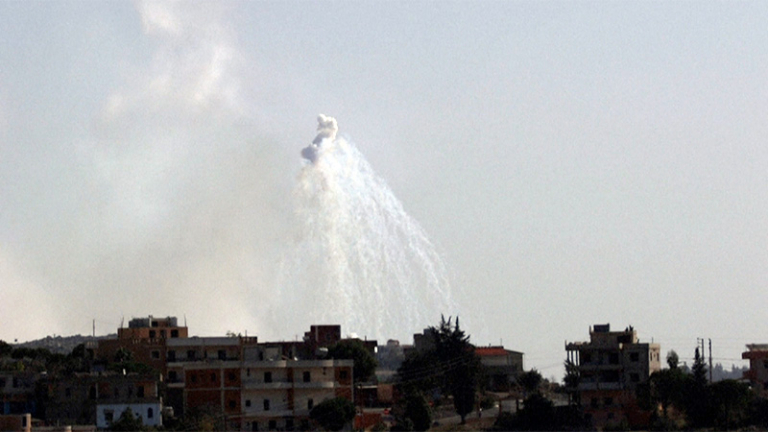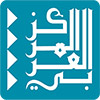
On October 16, 2023, Israel indiscriminately targeted civilians in Al-Duhayra, a town in Southern Lebanon, with a chemical agent that can burn skin to the bone and inflict serious respiratory harm. Amnesty International reported that many people were hospitalized and displaced after their homes caught on fire from the substance, and concluded that Israel had unlawfully used white phosphorus (WP), a toxic substance, against civilians. With such damaging and indiscriminate effects, the international community must officially recognize white phosphorus as a chemical and incendiary weapon under international law (it is currently not classified as such) and ban its use. Israeli forces, as well as other militaries, must cease the use of the agent and the international community must take steps to prosecute its unlawful use with civilians and infrastructure.
White Phosphorus and International Law
White phosphorus is a chemical substance mainly used in combat as a smokescreen tool for its ability to ignite when exposed to oxygen. It adheres to all surfaces including skin, posing severe health risks including deep burns that can penetrate bone. Its smoke, containing phosphoric acids, harms the eyes and respiratory system when burned. It is unextinguishable by water and can reignite upon exposure to oxygen, exacerbating wounds and causing fatalities, even with burns on just 10 percent of the body. Survivors face potential organ failure and lifelong suffering from contractures and psychological trauma. WP fires devastate civilian structures, property, crops, and livestock. Because of its legal use as a smokescreen and fire starter, however, it is not considered an inherent weapon and is not banned under international law.
White phosphorus fires devastate civilian structures, property, crops, and livestock.
The two conventions governing chemical and incendiary weapons are the Convention on Certain Conventional Weapons (CCW) and the Chemical Weapons Convention (CWC). Within the CCW is the Protocol on Prohibitions or Restrictions on the Use of Incendiary Weapons (Protocol III), the sole governing institution for incendiary weapons. Israel has ratified the CCW but has yet to ratify the CWC, along with Egypt, North Korea, and South Sudan. Under Protocol III, WP is not considered an incendiary weapon. Article 1(b)(i) of Protocol III excludes from the definition “munitions which may have incidental incendiary effects, such as illuminants, tracers, smoke or signaling systems.” This has allowed the chemical to go ungoverned by international humanitarian law. Under the CWC, WP is not considered a chemical weapon for the same reasons. These narrow definitions have allowed WP to go ungoverned.
The use of WP in combat has been documented globally. Notably, the United States used WP in several military operations in Iraq and Syria. Russia also has deployed WP during its invasion of Ukraine. In both 2014 and 2023, Human Rights Watch called upon the international community to adopt a broader definition of incendiary weapons that encompasses WP and other multipurpose munitions with incendiary effects. Rights groups also call for the prohibition of incendiary devices in civilian areas, regardless of mechanism or intention, because they indiscriminately affect civilians and civilian infrastructure.
A History of Abuse
Israel’s widespread abuse of WP did not start last October. For over a decade, Human Rights Watch has documented Israel’s violations in both Gaza and Lebanon. During its 2008-2009 military campaign in Gaza, called Operation Cast Lead, Israel attacked civilians with WP. In 2009, Human Rights Watch concluded that the Israeli Army deployed WP, killing civilians and damaging structures including “a school, a market, a humanitarian aid warehouse and a hospital.” A 2009 United Nations fact-finding mission known as the Goldstone Report confirmed that Israel failed to take feasible precautions required by customary law to avoid civilian harm, describing Israel’s actions as “reckless.” In one instance, the fact-finding mission confirmed that Israel fired WP shells over the UNRWA compound in Gaza City. Israel rejected the Goldstone report, however, and no action was taken. Following an Israeli Supreme Court ruling in 2013, the Israeli military stated that it would stop the use of WP in its artillery shells, but to no avail.
Fast forward to May 2023. At the 5th Review Conference of the Organization for the Prohibition of Chemical Weapons (OPCW), Palestine accused Israel of using WP on civilians in Gaza. In response, Israel accused Palestine of exploiting the forum for political gain. In November 2023, at the 28th session of the OPCW, Palestine again accused Israel of using WP illegally. Israel rejected the accusation and no action has been taken on these matters. Last October, Human Rights Watch concluded that Israel’s military use of WP violated international humanitarian law. On November 15, Israel launched 300 WP strikes on a densely populated neighborhood in Beit Lahia, Gaza in less than 40 minutes, and between October 7 and November 16, launched 1,000 total WP strikes.
Israel has continuously deployed WP against civilians in southern Lebanon since October 2023
Israel’s history of WP use in Lebanon is extensive. Lebanon’s then-President Émile Lahoud accused Israel of using WP against civilians during the 2006 Lebanon War. Since the war on Gaza began on October 7, 2023, Israel has continuously deployed WP against civilians in southern Lebanon where conflict between Israeli and Hezbollah forces continues to escalate. Amnesty International reported on Israel’s unlawful use of WP from October 10 to 16, 2023, calling for the indiscriminate attack in Al-Duhayra to be investigated as a war crime, because the indiscriminate attack injured at least nine civilians. The American University of Beirut reported that Israel’s WP use in October resulted in 134 forest fires, dozens of civilian fatalities and injuries, and the displacement of 20,000 people in Lebanon. According to Al Jazeera, from October to March, Israel dropped 117 phosphoric bombs on southern Lebanon. By the end of March, nearly 108 million square feet of land had been burned by white phosphorus and other incendiary weapons. On June 5, Human Rights Watch verified the use of WP munitions by Israeli forces in Lebanon “in at least 17 municipalities across south Lebanon since October 2023, including five municipalities where airburst munitions were unlawfully used over populated residential areas.” Another attack on June 8 sparked wildfires that spread to civilian homes. In October, the Lebanese Mission to the United Nations sent a letter to the UN Security Council (UNSC) stating that Israel fired phosphorous artillery shells “in the area of Bastra–Sahl al-Mari and the outskirts of Rayhanah, Barri, and Shanuh (12 phosphorous shells), causing fires to erupt; the outskirts of the town of Yarun (11 phosphorous shells); the outskirts of the town of Labbunah (23 phosphorous shells), causing fires to erupt; and the outskirts of the towns of Mays al-Jabal and Blida.” In November 2023, the Lebanese government stated that it would file a complaint to the UNSC against Israel for “using white phosphorus in striking Lebanese border areas.” In July, the Lebanese foreign minister posed the matter again at the UNSC.
Israel continues abusing WP in Lebanon to this day with reporting as recently as June on attacks in Lebanese villages Kfar Kila, Khiam, and others as well as in Rashaya al-Fakhar in July. Legal specifics aside, any use of WP on civilian populated areas violates a state’s legal responsibility to avoid civilian harm. Israel making any civilian population the victim of attack is prohibited. As of July 23, at least 55 towns in Lebanon have been affected by fires caused by WP and by other munitions deployed by Israel.
American Involvement
The United States is home to the world’s largest WP production and distribution facility, made from an alliance between Pine Bluff Arsenal, Bayer, and Israel Chemical Ltd. (now ICL Group). An investigation by the Washington Post found that the United States supplied Israel with the WP used in the indiscriminate attacks last October. When asked about the accusations, the Pentagon deflected, despite evidence of US military identification coding on the WP artillery. The United States has been made aware of Israel’s use of WP since the current war on Gaza began but has not accepted responsibility for its involvement in the production and sale of such munitions or for Israel’s unlawful conduct. When pressed on the matter in December, the White House and the Department of State said only that the United States was “concerned.” It is yet to be confirmed if the WP used in attacks after October were provided by the United States, or by other countries with WP in their arsenal.
The US government must uphold its laws on weapons transfers and halt all weapons sales to the state of Israel and other countries violating international law. The US must also investigate Israel’s use of US-provided WP against civilians and make transparent all US sales of WP to Israel before and after October 7.
The Laws Must Change
Current international laws and regulations on chemical weapons and incendiary agents are inadequate and must be reassessed. For decades, rights groups have made the same argument: the status of international law as it relates to WP and other agents that have secondary incendiary effects and pose immediate harm to civilian populations must be reexamined.
Protocol III of the CCW is the only governing tool on the use of incendiary weapons, but its narrow definition is highly flawed and must be broadened to include WP. WP should be considered an incendiary weapon, which would cause Israel to be in violation of Protocol III Article 2. The international community must work to eliminate loopholes in Protocol III and stigmatize all incendiary agents due to their crippling and indiscriminate effects on infrastructure, health, and the environment. Human Rights Watch stated that a “complete ban on incendiary weapons would have the greatest humanitarian benefits,” and the international community should be inclined to agree. The CWC must also be reassessed to define WP as a chemical weapon in all its military uses. The law must encompass all munitions and define them by both their primary and secondary effects.
In addition to reassessing laws, the international community must investigate all of Israel’s attacks involving WP and other chemical agents and initiate reparation settlements for all civilians who have been harmed and displaced. Missions should also be conducted to research the lasting environmental damage and other long-term consequences of WP use. It is imperative that Israel cooperate with these efforts and cease all use of WP to uphold its legal duty to prevent civilian harm.
The views expressed in this publication are the author’s own and do not necessarily reflect the position of Arab Center Washington DC, its staff, or its Board of Directors.
Featured image credit: AFP

